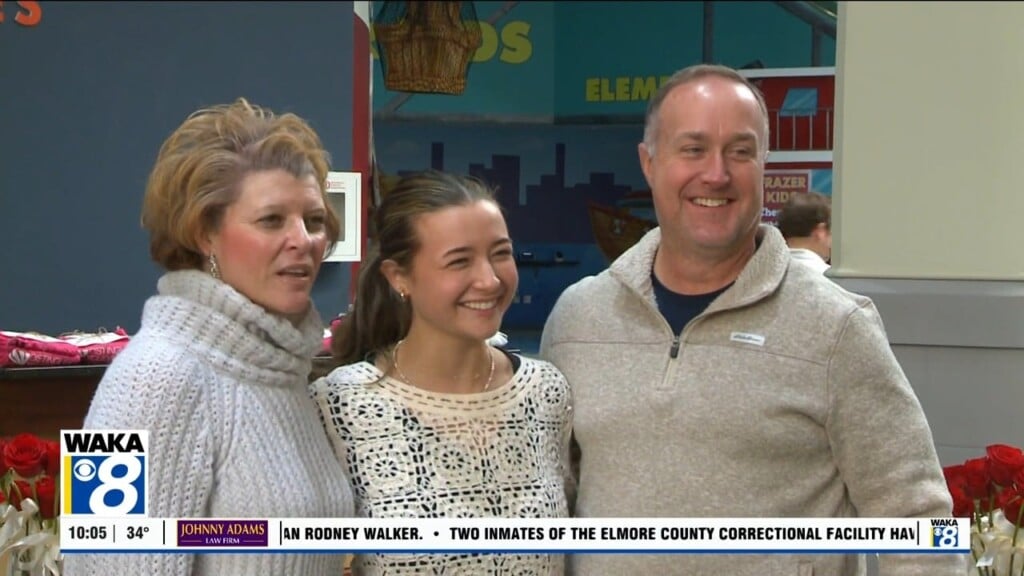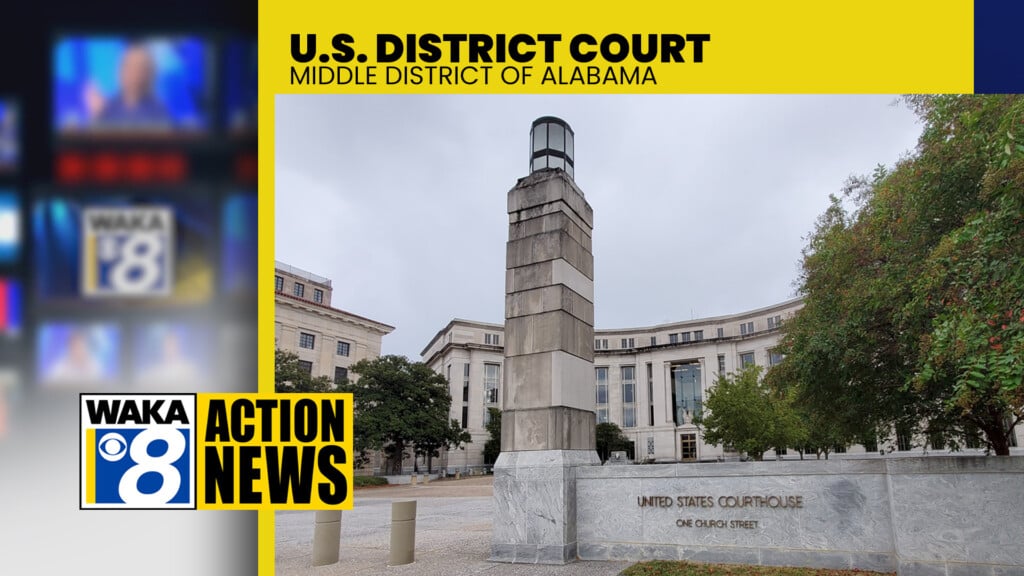Big Ten, Selma partner for basketball court reopening & history lesson
More than 150 student-athletes from Big Ten schools gathered in Selma on Saturday to celebrate the reopening of the Ronnie Sharpe Park basketball court and learn about civil rights history in the city where Bloody Sunday occurred 60 years ago.
The day began with a ribbon-cutting ceremony at Ronnie Sharpe Park on Voeglin Avenue, an area of Selma heavily damaged by an EF2-rated tornado on Jan. 12, 2023. The renovated court features new surfacing, fresh striping and improved backboards.
City leaders said the renovated basketball court will provide local youth with resources to develop their athletic talents.
“Having a quality, top-notch basketball court on a playground that I grew up in, to see that. And to now be able to make that available to the young people in this area. That is a tremendous impact,” said Selma City Council president Billy Young. “And especially after having the hard times that we’ve had from the tornado in 2023. This is breathing life into our community.”
The court renovation was completed through a partnership between the city and the Big Ten Conference.
After the ceremony, student-athletes representing all 18 Big Ten schools — from Oregon to Rutgers — gathered at First Baptist Church. Speakers encouraged them to fight for racial equality and shared personal stories about their involvement in the civil rights movement.
The group then marched together to the Edmund Pettus Bridge, the site of the 1965 confrontation known as Bloody Sunday.
Omar Brown, Big Ten senior vice president of community and impact, said the event provided valuable lessons to Big Ten student-athletes.
“There’s a piece around the history of Selma that you don’t get in a book. For us, the focus has been oral history,” Brown said. “So when you bring in speakers to tell the story that’s something that you just can’t pick up in a book. It hits a little bit different. It’s a lot of meetings. I saw a lot of teary eyes. So I think they walk away understanding the impact of Selma.”






